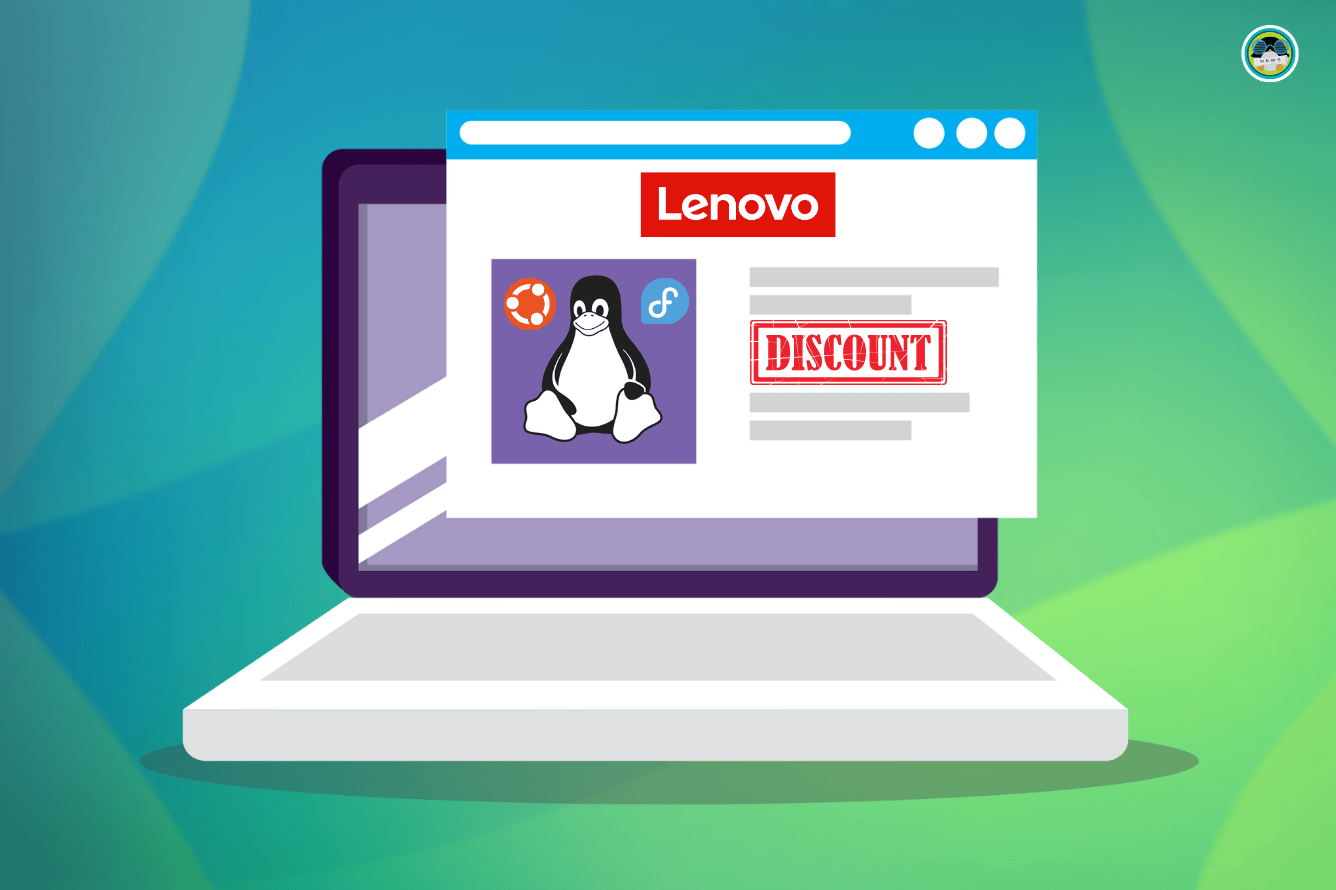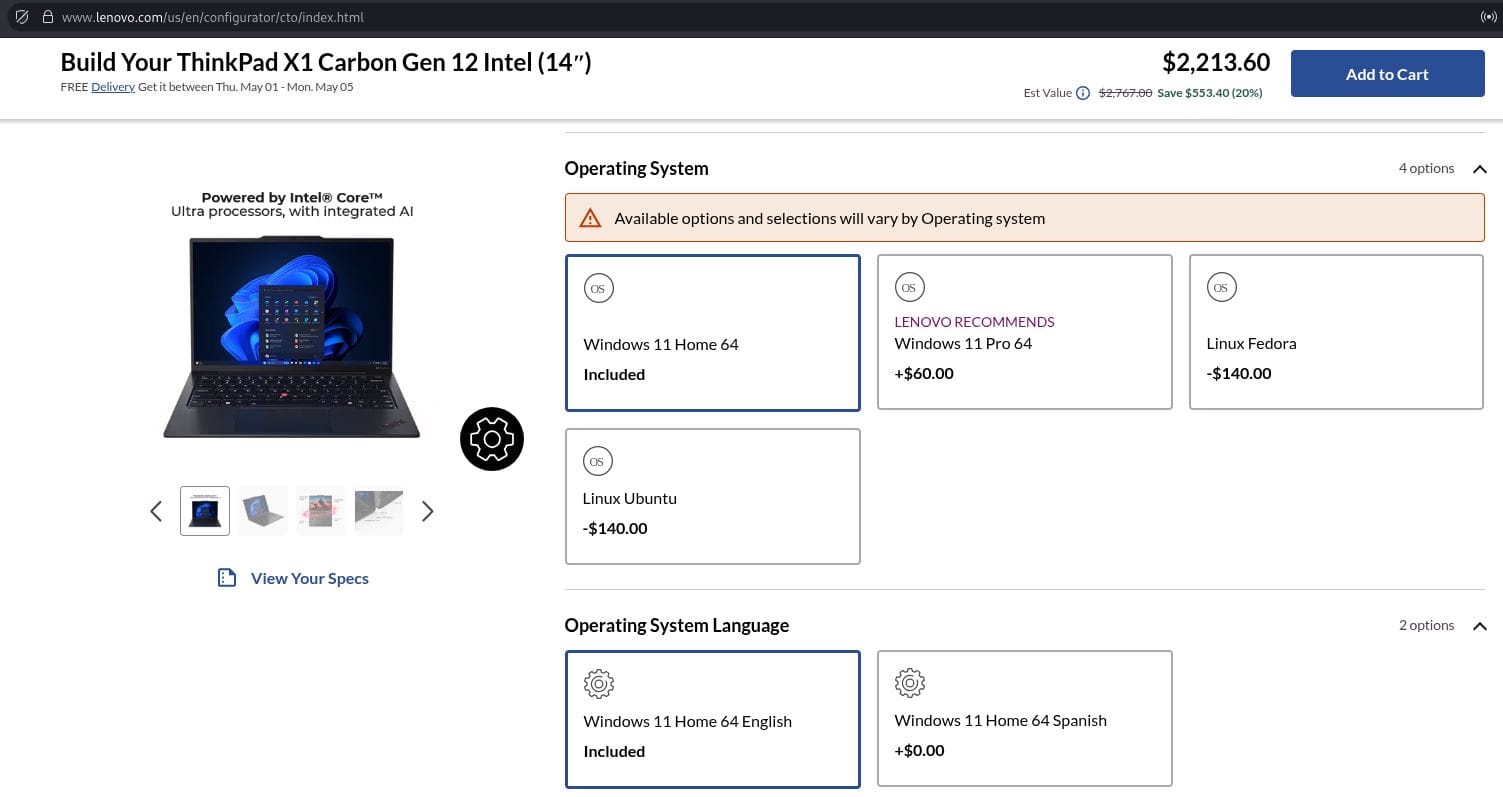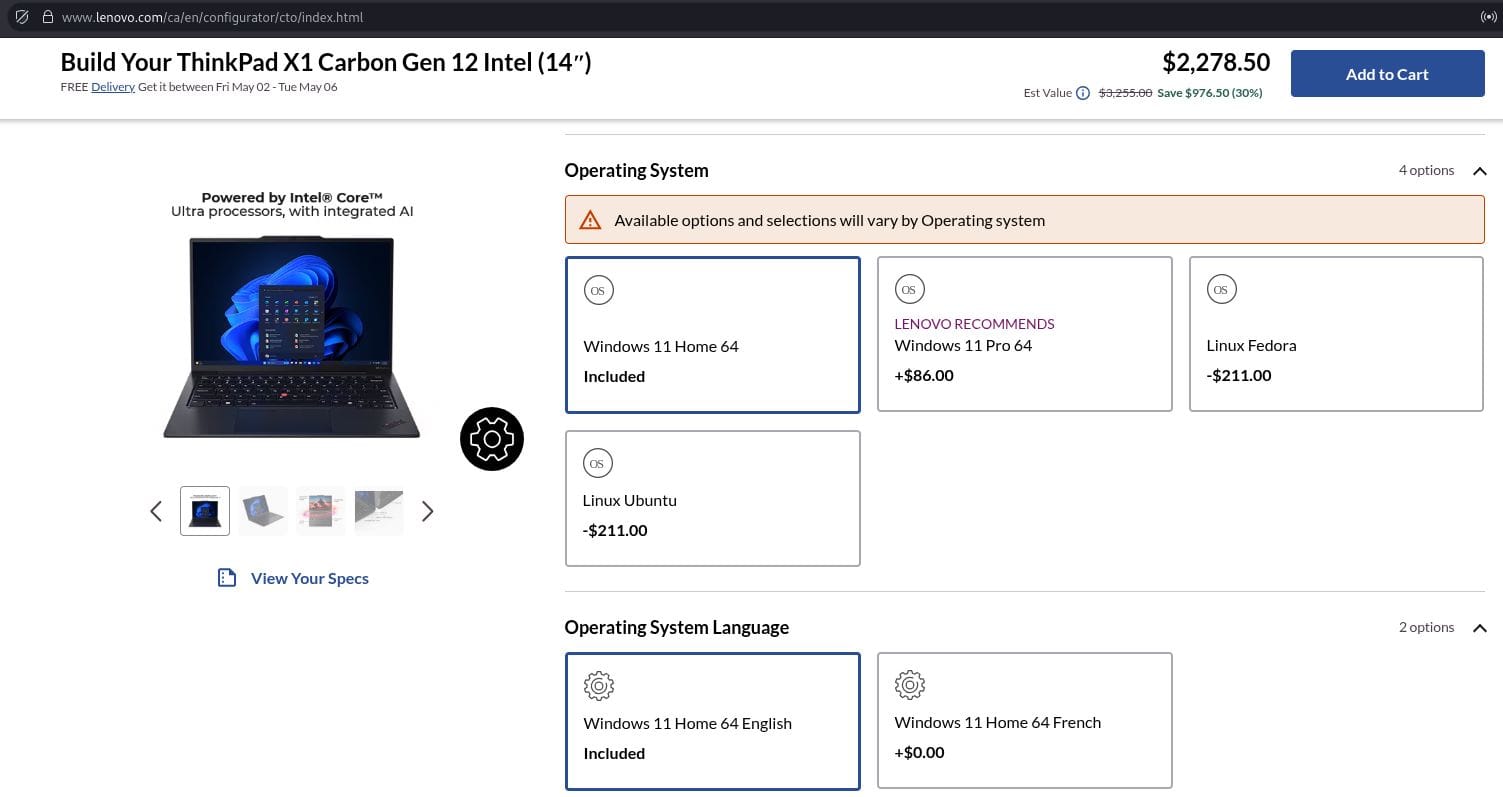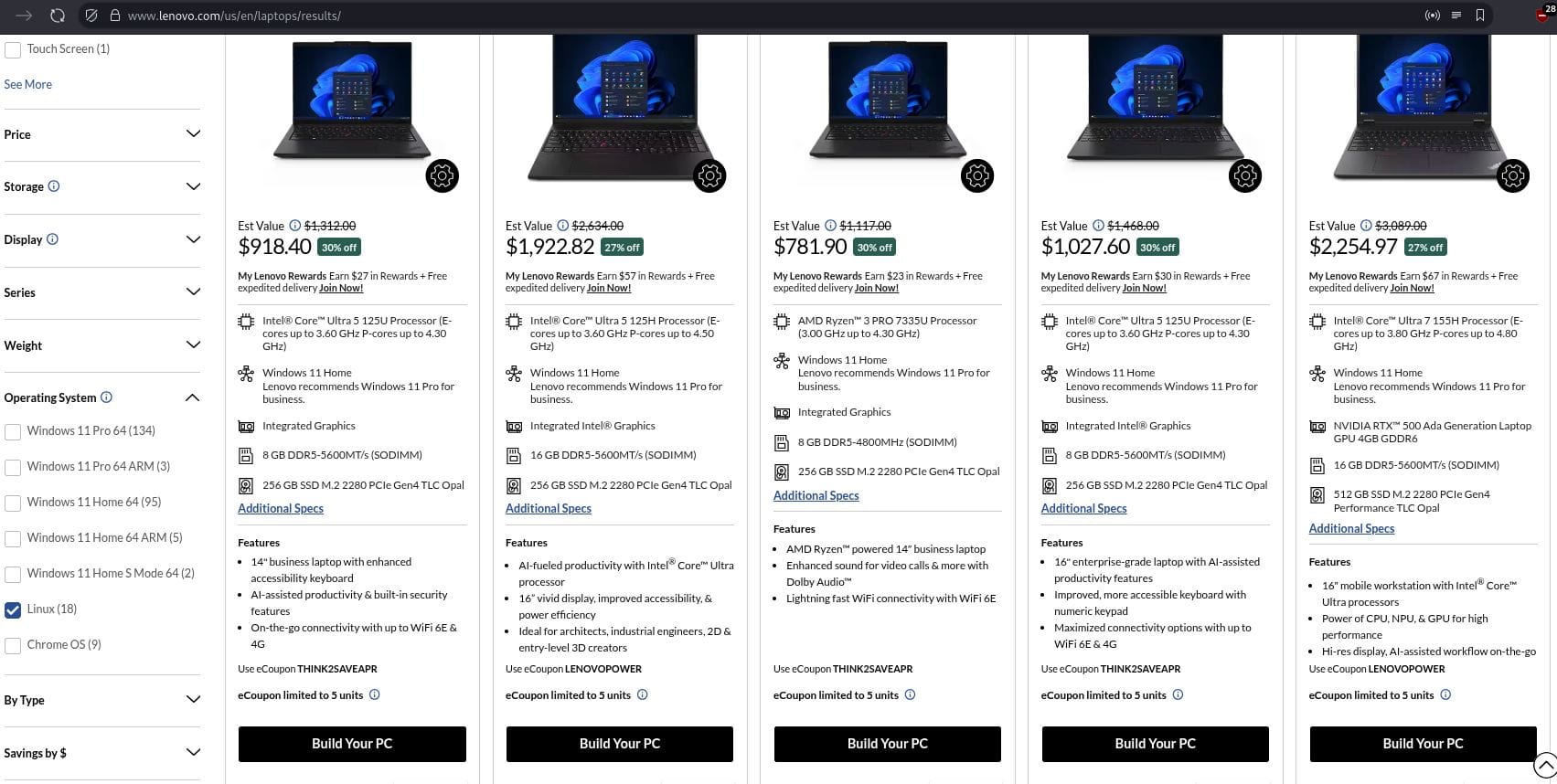- cross-posted to:
- linux@lemmy.ml
- cross-posted to:
- linux@lemmy.ml
cross-posted from: https://rss.ponder.cat/post/165736
At least in the U.S. and Canada, that is.
This was brought to my attention thanks to a Reddit post where a user (presumably a resident of Canada), had posted how Lenovo was shipping laptops with Fedora and Ubuntu at a cheaper price compared to their Windows-equipped counterparts.
Others then chimed in, saying that Lenovo has been doing this since at least 2020 and that the big price difference shows how ridiculous Windows’ pricing is.
Cutting the Windows Tax
When I dug in further, I found out that the US and Canadian websites for Lenovo offered U.S. $140 and CAD $211 off on the same ThinkPad X1 Carbon model when choosing any one of the Linux-based alternatives.
US pricing on left, Canadian pricing on right.
Interestingly, while the difference in pricing is noticeable, your mileage may vary if you are looking for such laptops on the official website. Not all models from their laptop lineup, like ThinkPad, Yoga, Legion, LOQ, etc., feature an option to get Linux pre-installed during the checkout process.
Luckily, there is an easy way to filter through the numerous laptops. Just go to the laptops section (U.S.) on the Lenovo website and turn on the “Operating System” filter under the Filter by specs sidebar menu.
Yes, it’s as simple as that. You can do the same for the various official online regional storefronts that Lenovo runs to see whether Linux-based operating systems are being offered on their laptops in your country.
Closing Thoughts
It is good to see that Lenovo is offering Linux in its laptops. In fact, there is another big-name laptop manufacturer, Dell, who also does something similar with its Ubuntu-certified laptops, but both have the same constraint of having limited options for buyers.
Also, as far as I know, Dell doesn’t reduce the pricing if you choose Linux instead of Windows. Correct me if I am wrong in the comments.
Nonetheless, I think these manufacturers could do a better job in marketing these Linux-based alternative operating systems to general consumers, showing them how they can save big when opting for these instead of the pricey and bloated Windows.
Otherwise, we might have to start observing Windows Refund Day again.
💬 Your take on this? Would mainstream users benefit from having Linux pre-installed on their laptops?
From It’s FOSS News via this RSS feed




Can anyone tell me why Ubunto? Long term support?
It is easy to use and well-known.
I thought Mint was the easy to use one and well known.
For people outside of the Linux space, Ubuntu is more heard.
Mint doesn’t have a proper company behind it.
It’s a community project adding a little fluff on a Ubuntu base.
Ubuntu can actually provide proper support, which Mint doesn’t.
Does Ubuntu have a company behind it? I thought they were all communities.
It does
Mint is an Ubuntu derivative.
Mint is Ubuntu with the icky stuff removed and an additional layer of polish added on top.
In the literal sense.
What’s the icky stuff?
Proprietary stuff like snaps mostly.
Mint has some weird issues sometimes. I spent hours trying to configure smooth scrolling in Firefox (I don’t want it to be with 3 line increments, which Mint had enabled by default), also the network stack was odd, all the websites were opening with a delay. I was blaming my ISP, until I realized MQTT commands also run with a delay. So if someone says Ubuntu is more predictable, I would agree.
Yes, Predictable release cadence is also important.
Manufacturers have to validate that it is going to continue working and remain supported. Rolling releases are basically impossible to accommodate in that process.
It’s also likely that Canonical is providing free assistance to them, in order to secure enterprise contracts on the other end.
It doesn’t hurt that Ubuntu is from South Africa. Other Linux companies that I know of may be European like Suse but they’re derived from Red hat who’s an American company. Ubuntu comes from Debian which I think is not a company?